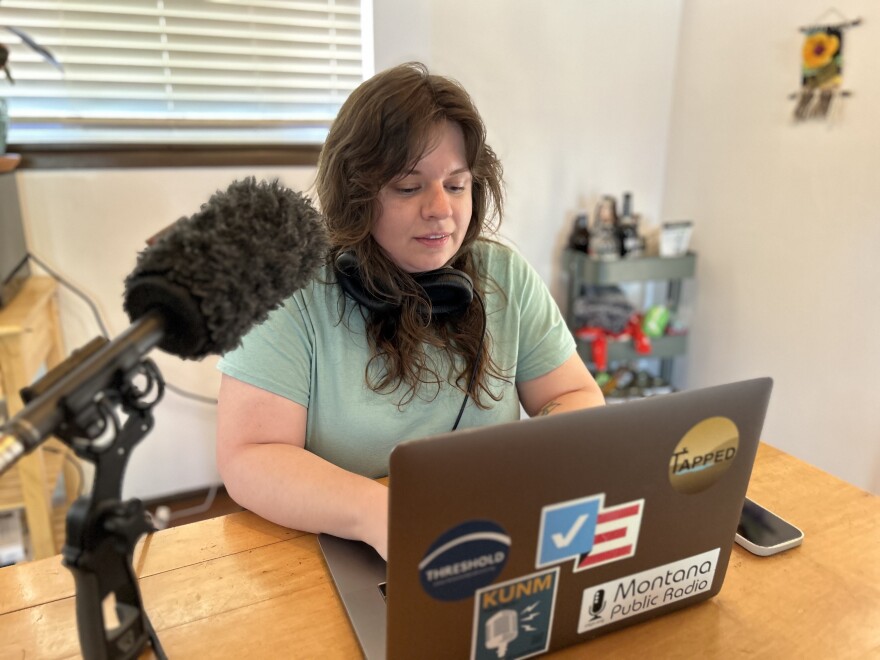Regular 91°µÍø listeners have likely noticed a new voice bringing news stories to our airwaves from across New Mexico. Megan Myscofski has joined the team as a reporter covering public health, poverty and equity. She spoke from her home in Santa Fe about where she’s been and what she’s bringing to her new role.
MEGAN MYSCOFSKI: I started in Missoula, Montana at . I was both a reporter and a Morning Edition host, but I did learn I'm maybe not suited to that schedule. I then went on to , where I reported on business and economics. I also did a water podcast there called that was a storytelling podcast with mostly economics kind of water stories.
JONES: And what brought you to New Mexico after all of that?
MYSCOFSKI: You know, my partner and I really like New Mexico. He lived here for a long time. And it's very pretty — there's a lot of interesting things to do and I really like the weather here.
JONES: The weather is hard to dislike — we have all four seasons, but it's fairly mild.

MYSCOFSKI: My dog definitely appreciates the weather change.
JONES: A lot of our listeners have already been hearing a number of your stories over the last few weeks since you joined our team at 91°µÍø. But what would you say, as they're continuing to listen to your work, what your approach to your reporting is?
MYSCOFSKI: So, my background is in economics reporting, and I'm really interested in the money angle of most stories.
JONES: What does that actually end up looking like in the field?
MYSCOFSKI: I like to have an idea of how money affects people's lives. And I think, when you follow the money, a lot of the times, that's where you find a lot of the stories that are most important to people. I've done a lot of housing reporting, for example. I think following, you know, what's been going on with housing throughout the West over the last few years has been really interesting. And also just a question of how the bigger economic picture affects each of our lives in its own way.
JONES: And now, your position with us is in part funded by the . So, that focuses you on issues like public health and equity. How does that interplay with your background in economics?
MYSCOFSKI: I think the biggest answer is that there's a lot of money in public health, as well as equity or inequity. The first feature I have done here so far was about reproductive health and about a center that's already got $10 million from the state. That's a pretty decent chunk of cash. Who we give that money to demonstrates what our priorities are, right?
JONES: What attracts you to public radio as your medium as a journalist — or audio storytelling more broadly?
MYSCOFSKI: I mean, I've been a public radio listener since I was in high school. Even though I didn't start doing this until my late 20s, my first ever internship was in public radio. I was an exchange student in high school in Germany and they kind of just randomly put me in a community radio station. So, that was when I first learned how to, you know, do the equipment, and work the mic and walk around with the headphones on. And I think the reason that I prefer working in radio as a reporter is that, you know, it might sound kind of trite, but it is really intimate. In my experiences working in other media, it doesn't have that. There's still a little bit more distance. And I think when you actually hear somebody's voice on the radio, and maybe even hear the sounds happening around them — what their backyard sounds like or what a factory sounds like — it just moves you there a lot quicker than sometimes other media can.






